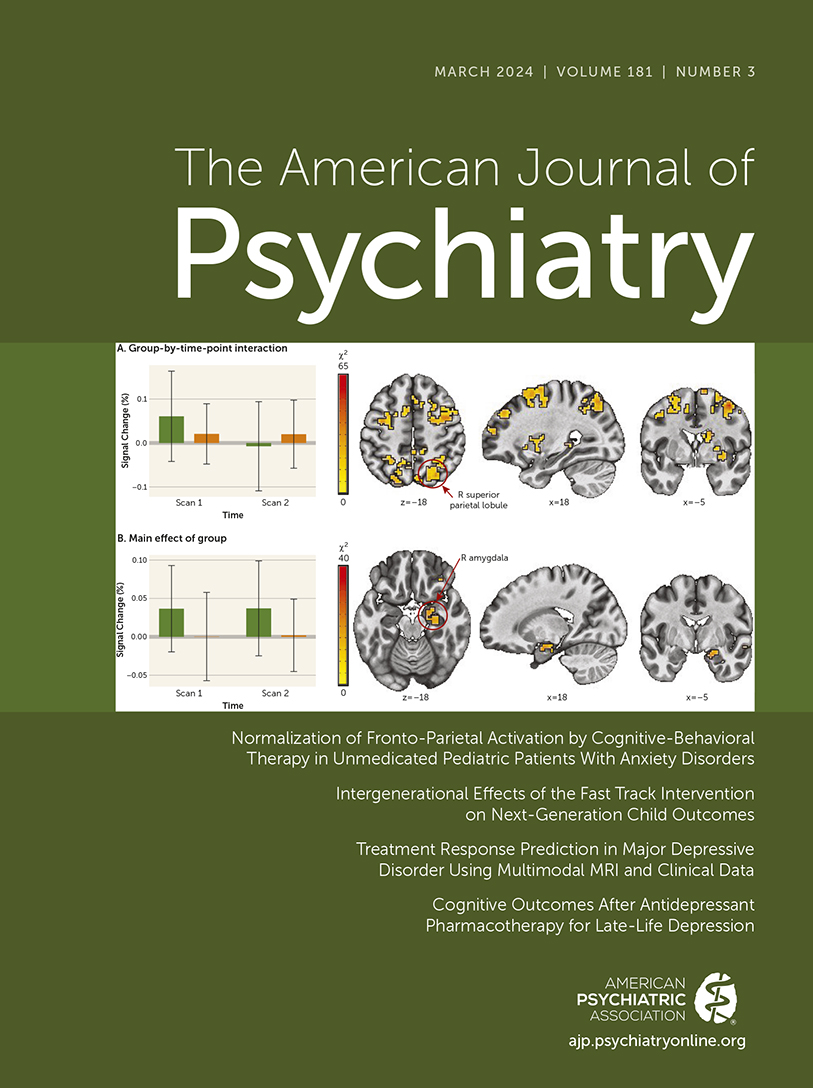Cognitive Outcomes After Antidepressant Pharmacotherapy for Late-Life Depression: A Systematic Review and Meta-Analysis
Abstract
Objective:
The authors evaluated whether treatment of late-life depression (LLD) with antidepressants leads to changes in cognitive function.
Methods:
A systematic review and meta-analysis of prospective studies of antidepressant pharmacotherapy for adults age 50 or older (or mean age of 65 or older) with LLD was conducted. MEDLINE, EMBASE, and PsycInfo were searched through December 31, 2022. The primary outcome was a change on cognitive test scores from baseline to after treatment. Secondary outcomes included the effects of specific medications and the associations between changes in depressive symptoms and cognitive test scores. Participants with bipolar disorder, psychotic depression, dementia, or neurological disease were excluded. Findings from all eligible studies were synthesized at a descriptive level, and a random-effects model was used to pool the results for meta-analysis.
Results:
Twenty-two studies were included. Thirteen of 19 studies showed an improvement on at least one cognitive test after antidepressant pharmacotherapy, with the most robust evidence for the memory and learning (nine of 16 studies) and processing speed (seven of 10 studies) domains and for sertraline (all five studies). Improvements in depressive symptoms were associated with improvement in cognitive test scores in six of seven relevant studies. The meta-analysis (eight studies; N=493) revealed a statistically significant overall improvement in memory and learning (five studies: effect size=0.254, 95% CI=0.103–0.404, SE=0.077); no statistically significant changes were seen in other cognitive domains. The evaluated risk of publication bias was low.
Conclusion:
Antidepressant pharmacotherapy of LLD appears to improve certain domains of cognitive function, particularly memory and learning. This effect may be mediated by an improvement in depressive symptoms. Studies comparing individuals receiving pharmacotherapy with untreated control participants are needed.
Access content
To read the fulltext, please use one of the options below to sign in or purchase access.- Personal login
- Institutional Login
- Sign in via OpenAthens
- Register for access
-
Please login/register if you wish to pair your device and check access availability.
Not a subscriber?
PsychiatryOnline subscription options offer access to the DSM-5 library, books, journals, CME, and patient resources. This all-in-one virtual library provides psychiatrists and mental health professionals with key resources for diagnosis, treatment, research, and professional development.
Need more help? PsychiatryOnline Customer Service may be reached by emailing [email protected] or by calling 800-368-5777 (in the U.S.) or 703-907-7322 (outside the U.S.).



